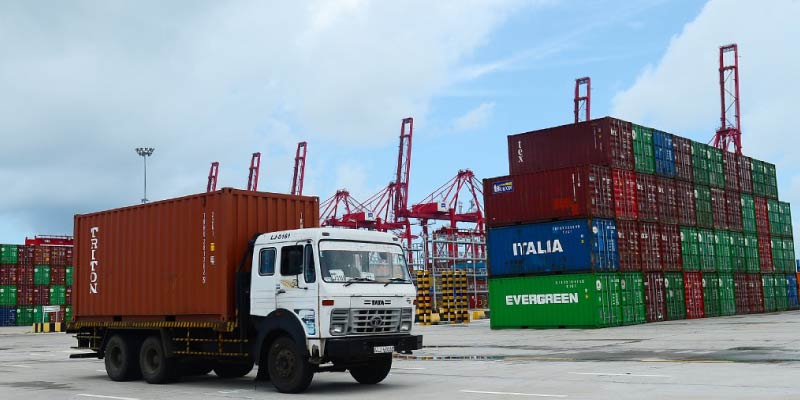- India
- Mar 04
Illicit financial flows hit Indian revenue
India has the third-highest trade-related illicit financial flow among 135 countries with a whopping $83.5 billion escaping the government’s tax net owing to trade-based money laundering tactics, according to a report released on March 3 by US-based think tank Global Financial Integrity (GFI).
According to the report titled ‘Trade-related Illicit Financial Flows in 135 Developing Countries: 2008-2017’, five countries with the largest identified value gaps were China at $457.7 billion, followed by Mexico at $85.3 billion, India at $83.5 billion, Russia at $74.8 billion and Poland at $66.3 billion.
The report said a staggering $8.8 trillion value gap was identified in trade between 135 developing countries and 36 advanced economies over the period of 2008 to 2017.
The three largest value gaps between the 135 developing countries and 36 advanced economies were identified in electrical machinery ($153.7 billion), mineral fuels ($113.2 billion) and machinery ($111.7 billion), it said.
How was the report prepared?
The report examined the latest official government trade data reported to the UN to estimate the magnitude of trade misinvoicing - one of the largest components of measurable illicit financial flows between and among 135 developing countries and 36 advanced economies.
The term ‘illicit financial flows’ (IFFs) tends to include many types of activities, such as trade misinvoicing, smuggling, tax evasion, etc. This report only focuses on trade misinvoicing, or the trade-related aspects of illicit financial flows.
Some examples of IFFs
* A drug cartel using trade-based money laundering techniques to use the illegal proceeds of narcotics sales to purchase used cars, which will be exported to the drug source country and sold.
* An importer using trade misinvoicing to evade customs duties, value-added tax (VAT) or income taxes.
* A corrupt public official using an anonymous shell company to transfer stolen state assets into a bank account.
* A wealthy individual or multinational corporation hiding taxable income or wealth from national tax authorities in offshore centres or tax havens - often referred to as “secrecy jurisdiction”.
* A human trafficker smuggling cash across the border.
* An individual wiring money to finance terrorist activities in another part of the world.
Trade misinvoicing occurs when importers and exporters deliberately falsify the stated prices on the invoices for goods they are importing or exporting as a way to illicitly transfer value across international borders, evade tax and / or customs duties, launder the proceeds of criminal activity, circumvent currency controls and hide profits offshore.
The countries included in this report are based on the International Monetary Fund classification system, which is comprised of 148 developing countries and 36 advanced economies. However, 13 of the developing countries did not report sufficient trade data to the UN to be included in this analysis.
In order to identify a country’s imports / exports that may have been misinvoiced, the GFI conducts a value gap analysis by examining data submitted by governments each year to the UN Comtrade database and applying a series of filters to ensure unmatched trades are omitted.
The GFI then uses a partner-country analysis to compare and contrast the differences between any set of two countries in order to identify value gaps or mismatches in the reported data.
Trade misinvoicing done when importers or exporters deliberately falsify the price they declare for goods on the invoice they submit to Customs authorities.
For example, if Ecuador reported exporting $20 million in bananas to the US in 2016, but the US reported having imported only $15 million from Ecuador that year, this would reflect a mismatch, or value gap, of $5 million in the reported trade of this product between the two partners for that year, the report said, explaining the value gaps.
Value gap high in India
About the value gaps identified for India, GFI’s senior economist Rick Rowden said a good way to think about a value gap is “the amount of trade that was not properly taxed” by the governments of the importers and exporters involved.
“This is why GFI believes the practice of trade misinvoicing is such a big problem - it leads to huge amounts of trade that are not being properly taxed, thus countries are losing out on billions of dollars of uncollected trade taxes each year,” Rowden said.
“For India’s trade with all its global trading partners, in terms of the sum of all of the value gaps identified in the country’s trade with all its global trading partners, we identified gaps totalling $83.5 billion for 2017, and an average sum of $77.9 billion over the 10-year period of 2008-17,” he said.
In terms of the value gaps in the bilateral trade between 135 developing countries and the 36 advanced economies, India consistently ranked among the top 10 largest value gaps across the 10-year period examined.
“Specifically, India registered the sixth largest value gap for the last six years of the 10-year period, and ranked sixth in terms of the largest average size of the value gaps among the 135 developing countries over the 10-year period,” Rowden said.
Manorama Yearbook app is now available on Google Play Store and iOS App Store

